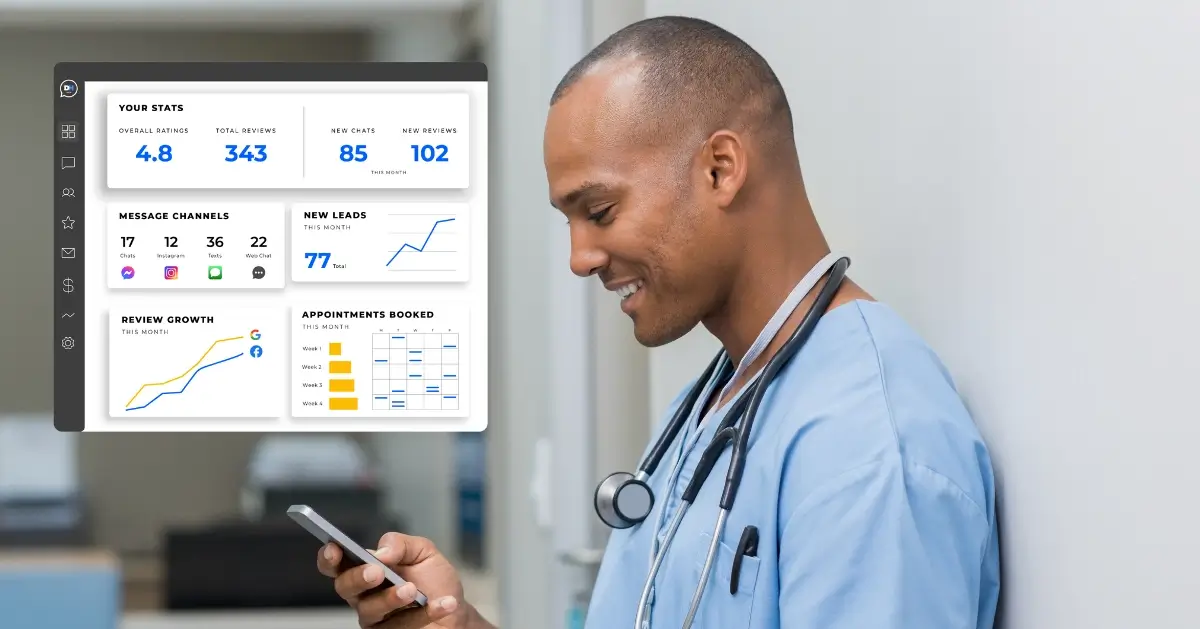In the constantly changing landscape of medical care, effectiveness is crucial. Medical practices face the dual challenge of delivering excellent patient care while managing growing administrative tasks. Enter medical practice management software , a game-changing solution that not only improves operations and also enhances the overall patient experience. By streamlining routine processes, this technology allows healthcare professionals to focus more on what truly matters - the well-being of their patients.
As the future of medical practice develops, adopting practice management software is becoming a essential step for providers looking to succeed in a fierce environment. From meeting booking to invoicing and reporting, these tools combine various aspects of practice operations into one unified system. The result is a smooth workflow that minimizes frustration and enhances productivity, ultimately fostering a stronger practice and enhancing patient outcomes.
Optimizing Management Tasks
Clinical operations solutions are revolutionizing the way healthcare practices manage their administrative chores. One primary benefits provided by this software is its capability to streamline repetitive processes such as appointment setting, billing, along with patient communications. Through diminishing the necessity to perform handwritten data entry and administrative follow-up, healthcare professionals may devote more time on patient care instead of paperwork. Such streamlining leads to less errors and ensures that all administrative tasks are completed efficiently.
Additionally, such software offer single entry to crucial data, enabling employees for manage patient records, insurance claims, as well as invoicing transactions from a unified platform. Such a streamlined method assists eliminate the chaos that can arise from utilizing various systems , thus enhances the total workflow. With intuitive interfaces , combined with live updates, medical facilities can keep greater visibility over their activities, allowing quick faster decision-making as well as resource allocation.
Also, clinical management solutions improves interactions within the healthcare team. By facilitating seamless communication among client data , as well as updates, this software guarantees that associated in patient care is on the same page. Such integrated interaction results in improved coordination, essential to deliver high-quality healthcare care. By adopting these solutions, software can significantly improve their operational effectiveness, ultimately leading to better results for patients.
Boosting Healthcare Consumer Interaction
Successful dialogue between medical professionals and clients is essential for successful medical results. Clinical management software enables this by enabling streamlined means of interaction. Clients can retrieve their health information, appointment reminders, and treatment plans through patient portals. This availability empowers patients to take charge of their health and inspires them to engage in a more engaged manner in their care.
Furthermore, clinical administration systems facilitates enhanced customization of communication. Practitioners can send targeted messages informed by client background, preferences, and needs. Whether it is follow-up reminders or educational resources related to certain health issues, tailored communication enhances the patient experience. This personal touch not only establishes trust but also promotes adherence to treatment plans.
Moreover, the implementation of remote consultation capabilities within healthcare management systems has revolutionized patient communication. Healthcare consumers can now have virtual appointments, which overcomes barriers related to travel and time. This ease fosters better engagement and ensures that patients receive immediate care. The ability to communicate through various channels makes it simpler for practices to meet the diverse needs of their healthcare consumer group.
Improving Financial Management
Sound financial management is crucial for any medical practice aiming to prosper in a competitive landscape. With the implementation of medical management software, practices can streamline billing and invoicing processes, minimizing errors and boosting cash flow. By enhancing these financial operations, healthcare providers can distribute their resources in a efficiently, permitting them to focus on patient care while maintaining that their financial health remains sound.

Another critical aspect of financial management is monitoring and analyzing revenue cycles. Practice management systems provides valuable insights through data tools that help practices assess key performance indicators. By comprehending revenue streams, detecting trends, and recognizing areas for improvement, practices can make wise decisions that boost profitability. This feature allows clinics to project future revenues, manage overhead costs, and develop strategic plans tailored to their financial goals.
Additionally, practice management software enhances the overall patient experience by simplifying payment processes. Patients can be offered flexible payment options, including online bill pay and payment plans, which can contribute to enhanced satisfaction and better collection rates. When patients are able to manage their payments easily, practices benefit not only from boosted compliance but also from a better professional relationship, thereby contributing to the financial stability of the practice.
